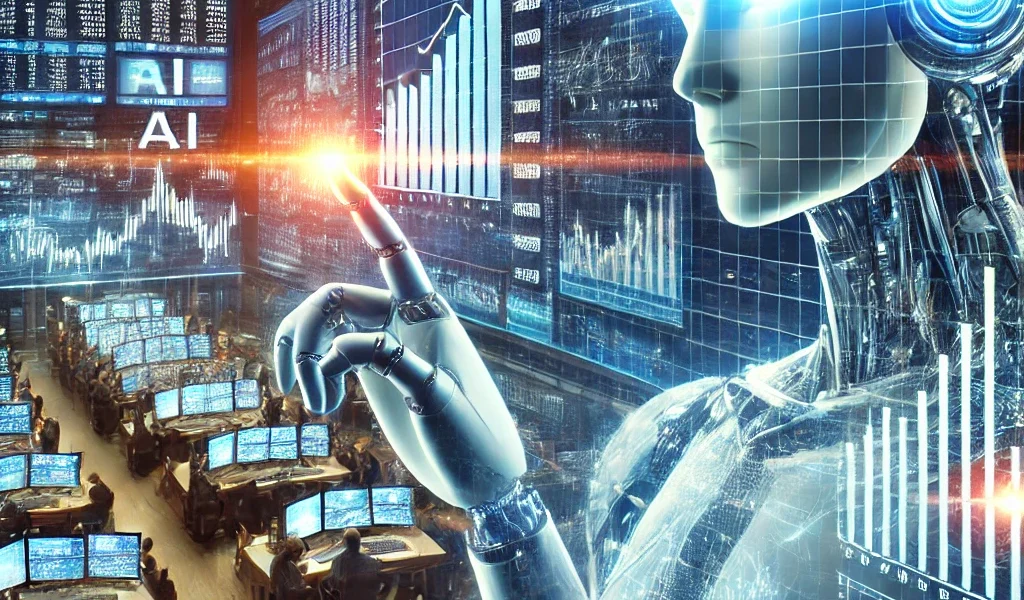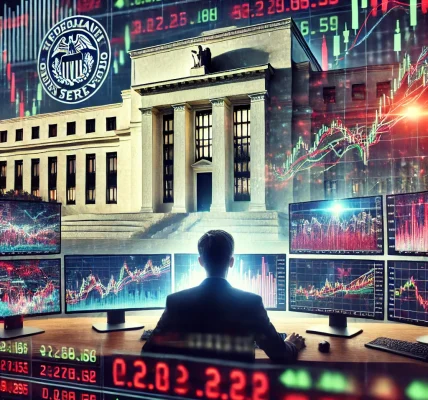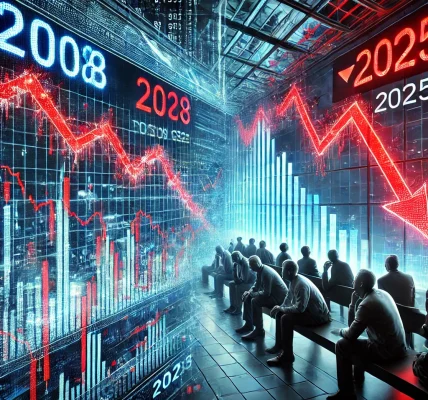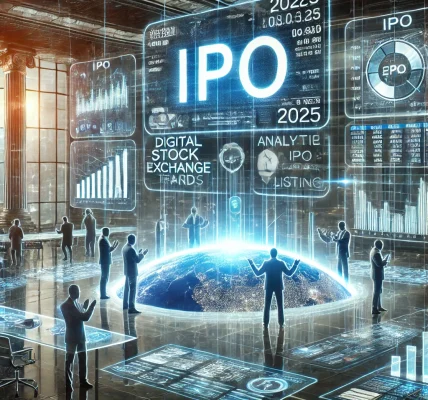Introduction
The rise of artificial intelligence (AI) and automation has significantly transformed the global financial markets. Traditional stock exchanges, once dominated by human traders, are now increasingly driven by algorithms, machine learning models, and automated trading systems. This shift is revolutionizing trading speed, market efficiency, and investment strategies, impacting retail investors, institutional traders, and financial institutions alike.
As AI continues to integrate into stock exchanges, it’s crucial to examine its implications, benefits, and challenges. This article explores how AI and automation are reshaping traditional stock exchanges and what it means for the future of investing.
How AI and Automation Are Changing Stock Exchanges
1. Algorithmic and High-Frequency Trading (HFT)
One of the most significant advancements AI has brought to stock exchanges is algorithmic trading or high-frequency trading (HFT).
- HFT uses sophisticated algorithms to analyze market trends and execute trades in milliseconds.
- These AI-powered systems can process vast amounts of data, identify trading opportunities, and react faster than human traders.
- Financial institutions like Goldman Sachs, Morgan Stanley, and Citadel use HFT to optimize their trading strategies.
Impact: While HFT enhances market liquidity and price efficiency, it also raises concerns about market manipulation, unfair advantages, and flash crashes.
2. AI-Powered Trading Bots and Robo-Advisors
- AI-driven trading bots are being used by both retail and institutional investors to automate trades.
- Robo-advisors, such as Betterment, Wealthfront, and Vanguard Digital Advisor, use AI to provide data-driven investment recommendations based on risk tolerance and financial goals.
Impact: These technologies make investing more accessible and cost-effective but may lead to over-reliance on automation, reducing human decision-making in investments.
3. Predictive Analytics and Market Forecasting
AI-powered predictive analytics leverage historical market data, real-time news, and economic indicators to forecast stock trends.
- AI models analyze social media sentiment, news headlines, earnings reports, and economic data to predict stock movements.
- Hedge funds and trading firms use AI-driven insights to make informed investment decisions.
Impact: While AI enhances forecasting accuracy, it is not infallible and can be affected by unexpected economic events and black swan occurrences.
4. Automated Market Surveillance and Fraud Detection
- AI plays a crucial role in detecting fraudulent activities and insider trading.
- Stock exchanges like NYSE, NASDAQ, and London Stock Exchange deploy AI-driven surveillance systems to monitor irregular trading patterns.
Impact: AI enhances market transparency and reduces fraudulent activities but also raises privacy concerns and the risk of false positives in fraud detection.
5. AI-Driven Personalized Investment Strategies
- AI analyzes individual investor behavior, risk preferences, and financial goals to create personalized investment strategies.
- AI-powered platforms like BlackRock’s Aladdin and Charles Schwab’s Intelligent Portfolios offer tailored portfolio management.
Impact: This approach enhances investment customization, but investors must remain cautious about potential biases in AI-driven recommendations.
Benefits of AI and Automation in Stock Exchanges
1. Increased Trading Efficiency
- AI executes trades faster than human traders, reducing lag and inefficiencies in the stock market.
- Automated trading lowers transaction costs and improves liquidity.
2. Enhanced Decision-Making
- AI processes large datasets to provide data-driven insights, improving investment decision-making.
- Machine learning models continuously improve based on new data, enhancing accuracy over time.
3. Reduction in Human Error
- AI eliminates emotional decision-making and minimizes the impact of human biases in trading.
- Automated systems ensure discipline in trading strategies, reducing impulsive investment decisions.
4. Greater Market Accessibility
- AI-powered platforms provide retail investors access to advanced trading tools once available only to institutional investors.
- AI-driven robo-advisors enable small investors to participate in the stock market with minimal fees.
Challenges and Risks of AI in Stock Exchanges
1. Market Volatility and Flash Crashes
- Algorithmic trading and HFT can cause flash crashes, where stock prices plummet within seconds due to automated responses.
- Example: The 2010 Flash Crash, where the Dow Jones dropped nearly 1,000 points in minutes due to algorithmic trading.
2. Over-Reliance on AI
- Excessive dependence on AI in trading may result in market instability if algorithms malfunction or misinterpret data.
- Human oversight remains essential to prevent AI-driven errors.
3. Regulatory Challenges
- Governments and financial institutions struggle to regulate AI-driven trading practices effectively.
- Ensuring compliance with SEC, FINRA, and other regulatory bodies is crucial to prevent unethical trading behavior.
4. Ethical Concerns and Data Privacy
- AI-driven financial models rely on vast amounts of personal and market data.
- Ethical concerns arise regarding data security, algorithmic biases, and AI’s role in wealth distribution.
The Future of AI and Automation in Stock Markets
1. Expansion of AI-Driven Hedge Funds
- More hedge funds and institutional investors will adopt AI for market analysis and automated trading strategies.
- AI-driven hedge funds like Numerai and Two Sigma are already leveraging machine learning to optimize investments.
2. Integration of Blockchain and AI in Trading
- Blockchain technology can complement AI by enhancing security, transparency, and fraud prevention in stock exchanges.
- Smart contracts and AI-driven decentralized trading platforms may become more prevalent.
3. AI-Powered Regulatory Compliance
- AI will play a key role in ensuring regulatory compliance, risk assessment, and anti-money laundering (AML) efforts within stock exchanges.
- Governments will likely implement AI-powered regulatory frameworks to monitor AI-driven trading practices.
4. Human-AI Collaboration in Investing
- The future of investing will be a hybrid approach where human expertise and AI-driven insights work together.
- AI will assist human traders rather than fully replace them, ensuring better decision-making and risk management.
Conclusion
AI and automation have significantly impacted traditional stock exchanges, transforming the way financial markets operate. While AI-driven trading systems offer numerous benefits, including increased efficiency, reduced human error, and enhanced decision-making, they also pose challenges such as regulatory concerns, flash crashes, and ethical dilemmas.
As AI continues to evolve, investors must remain informed about its implications and use AI tools responsibly. Regulatory bodies will need to strike a balance between innovation and oversight to ensure fair and transparent financial markets.
The future of stock exchanges will likely see an increased collaboration between AI and human traders, creating a more dynamic, efficient, and data-driven investment landscape. Understanding and adapting to these changes will be crucial for investors looking to thrive in the evolving financial ecosystem.




